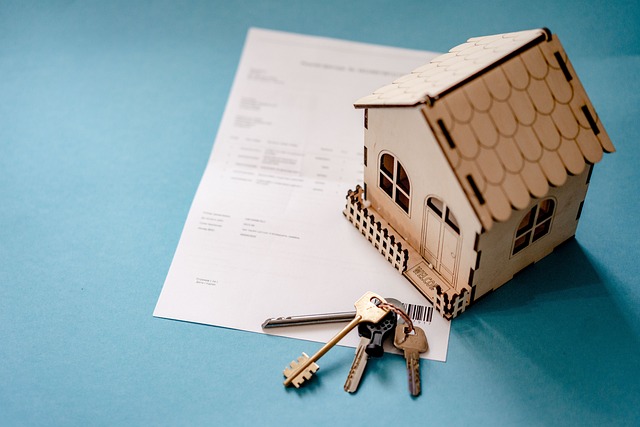Small Business Insurance is a crucial safety net for entrepreneurs, offering financial protection against diverse risks and liabilities, including property damage, liability claims, and business interruptions. Tailored policies for buildings, inventory, equipment, and liability coverages ensure business continuity, mitigate legal risks, and enable owners to focus on growth. By understanding their unique needs and comparing specialized insurers, small business owners can secure reliable coverage for long-term success and stability.
Small Business Insurance is a vital safety net for entrepreneurs, offering protection against unforeseen events that can disrupt or even shut down operations. This comprehensive guide provides an in-depth look at various aspects of small business coverage. We explore property insurance and its role in safeguarding physical assets, as well as liability insurance, crucial for managing legal risks. Understanding these policies and how to choose the right provider is key to ensuring your business’s longevity and financial stability.
Understanding Small Business Insurance: A Comprehensive Overview

Small Business Insurance is a crucial safety net for entrepreneurs, providing financial protection against potential risks and liabilities. It’s more than just a policy; it’s a commitment to safeguarding your business, employees, and personal assets. This type of insurance encompasses various coverage options tailored to meet the unique needs of small businesses.
A comprehensive Small Business Insurance package typically includes property insurance to protect buildings, inventory, and equipment from damage or loss due to events like fires, theft, or natural disasters. It also offers liability coverage, shielding against claims of bodily injury or property damage suffered by customers or third parties on your premises. By understanding the available options and customizing a policy that aligns with their business activities, small business owners can gain peace of mind, ensuring they’re prepared for unforeseen circumstances.
Why Is Property Insurance Crucial for Your Business?

Property insurance is an essential component of any small business owner’s risk management strategy. It serves as a financial safeguard against unforeseen events that could lead to significant property damage or loss, which are common hazards faced by businesses operating in today’s dynamic market. These hazards include natural disasters like fires, floods, hurricanes, and earthquakes, as well as man-made incidents such as theft, vandalism, and civil unrest. Without adequate property coverage, a small business could find itself overwhelmed with substantial financial burdens, potentially leading to closure or prolonged downtime.
For small businesses, property insurance is crucial for maintaining operational continuity and financial stability. It helps replace damaged or stolen inventory, fixtures, and equipment, ensuring the business can resume normal operations without excessive delays or costs. Moreover, property insurance provides liability protection, shielding businesses from legal repercussions and financial losses arising from accidents or injuries that occur on their premises. This coverage is especially vital for small enterprises where every dollar counts, as it allows them to focus on growth and success rather than unexpected crises.
Types of Property Coverage for Small Businesses

Small businesses come in various forms, from retail stores and restaurants to service-based operations and offices. Each has unique needs when it comes to property coverage. The most common types of property insurance for small businesses include building or structure coverage, which protects the physical space where your business operates. This can encompass the actual building, its foundation, and any permanent fixtures or equipment inside.
Additionally, business personal property (BPP) insurance is crucial. It covers the belongings and possessions vital to your operation, such as inventory, supplies, furniture, computers, and other electronics. BPP insurance also includes loss of income protection, ensuring your business can continue operations after a covered event like a fire or theft. This is essential for small businesses looking to safeguard their assets and maintain stability in an unpredictable market.
Liability Insurance: Protecting Your Business from Financial Risks

Liability insurance is a crucial component of any small business owner’s risk management strategy. This type of insurance protects your business from financial losses due to claims of bodily injury or property damage that may occur on your premises. Whether it’s a slip and fall incident, an accident involving equipment, or damage caused by a natural disaster, liability insurance can help cover legal fees, medical expenses, and settlement costs.
By investing in small business insurance that includes liability coverage, you’re not just protecting your assets; you’re ensuring the financial stability of your business. It allows you to focus on growth and success without constantly worrying about potential lawsuits or unexpected events. This peace of mind is invaluable as it enables you to run your operations smoothly, knowing that you have a safety net in place.
Common Causes of Business Liability Claims

Small businesses face various risks and potential liabilities on a daily basis, making comprehensive small business insurance a non-negotiable aspect of risk management. Understanding common causes of business liability claims is essential for entrepreneurs to make informed decisions regarding their coverage needs. One of the leading causes of such claims is product liability, which arises when a customer suffers an injury or illness due to a defective product that a business manufactures, sells, or distributes. This can include issues like faulty machinery, hazardous materials, or even food poisoning incidents related to a restaurant’s operations.
Another significant contributor to business liability claims is premises liability, focusing on the responsibilities of business owners to ensure their physical locations are safe for customers and employees. These claims often result from slip-and-fall accidents, unsafe working conditions, inadequate security, or hazardous conditions on the property, such as spilled liquids or uneven flooring. By addressing these common risks through appropriate insurance coverage, small businesses can protect themselves from potentially costly legal battles and financial setbacks.
Navigating Different Liability Insurance Policies

When it comes to Small Business Insurance, understanding liability policies is a critical step in protecting your venture. There are several types of liability insurance options available, each designed to cover different risks. General Liability Insurance is a staple for many small businesses, offering protection against claims of bodily injury or property damage on your business premises. This is essential for any business interacting with customers or clients physically.
Professional Liability Insurance, often called errors and omissions coverage, is tailored to protect service-based businesses from financial loss due to negligence or mistakes in professional services. It’s crucial for consultants, lawyers, accountants, and other professionals who provide advice or services. By carefully evaluating your business needs and the specific risks involved, you can choose the right liability insurance policy that aligns with your small business goals.
How to Choose the Right Insurance Provider

When choosing an insurance provider for your small business, start by understanding your specific needs and risk factors. Different businesses operate in unique environments with varying potential hazards. Therefore, a comprehensive small business insurance policy should be tailored to cover these distinct aspects. Research and compare several providers, focusing on their specialty in insuring small businesses and the range of coverage options they offer.
Look for companies that provide transparent quotes, clearly explain terms and conditions, and have positive reviews from existing clients. Check if they offer additional resources like risk assessment tools or loss prevention guidance to help you make informed decisions. The right insurer should be reliable, responsive, and adaptable, ensuring your business is adequately protected against potential risks and liabilities.
Tips for Effective Risk Management and Claim Prevention

Effective risk management is key to ensuring the long-term success and financial stability of any small business. When it comes to insurance, proactive measures can significantly reduce potential claims and their impact on your operations. Regularly reviewing and updating your small business insurance policy is essential; this includes assessing changes in your industry, workforce, and physical location. Stay vigilant against emerging risks and ensure your coverage keeps pace with these developments.
Implementing robust safety protocols and training employees to recognize and mitigate potential hazards can go a long way in preventing claims. Keeping detailed records of maintenance, inspections, and risk assessments is also valuable for insurance purposes. Additionally, fostering a culture of awareness and responsibility among staff can create a safer working environment, minimizing the likelihood of accidents and associated claims.
Case Studies: Real-World Examples of Small Business Insurance Success

Small Business Insurance: Learning from Real-World Examples
In a competitive market, having the right coverage can make all the difference for small businesses. Case studies offer valuable insights into how different policies have positively impacted companies across various sectors. For instance, a local bakery in a bustling city experienced a fire that partially damaged its premises and equipment. Thanks to their comprehensive Small Business Insurance policy, they received swift financial support for rebuilding efforts, ensuring minimal disruption to their operations and customer service.
Another success story involves a tech startup facing a data breach, leading to significant financial losses and potential reputational damage. With Liability Insurance coverage in place, the company was able to navigate legal complexities, cover compensation costs, and implement robust security measures. This not only helped them recover but also enhanced their standing in an increasingly aware digital landscape. These real-world examples underscore the critical role Small Business Insurance plays in safeguarding against unforeseen events, fostering stability, and enabling businesses to thrive.
